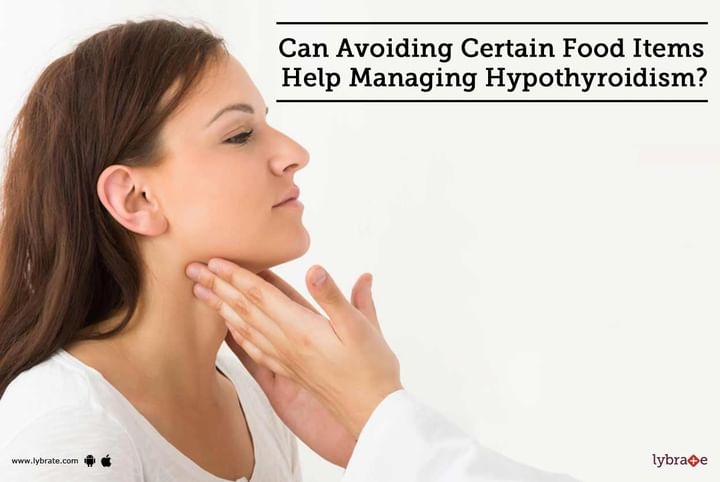Can Avoiding Certain Food Items Help Managing Hypothyroidism?
The thyroid is a small gland located on the neck. When the thyroid gland functions normally, it is easy to ignore it but an underactive or overactive thyroid gland can cause a number of problems. An underactive thyroid gland is known as hypothyroidism. In this case, the gland does not produce enough thyroid hormone. This, in turn, lowers metabolism. Your diet plays a large role in influencing the functioning of the thyroid gland. Some of the foods you should avoid in cases of hypothyroidism are:
1. Cruciferous Vegetables -
This includes vegetables such as cabbage, bok choi, kale, sprouts, and broccoli. These vegetables restrict the thyroid’s ability to absorb iodine which in turn lowers the functionality of the thyroid gland. While you do not need to completely avoid these vegetables, you should restrict their intake to less than 5 ounces each day. Cooking these vegetables can also help reduce their effect.
2. Soy -
Soy products are rich in plant-based phytoestrogen. This hormone interferes with the body’s ability to use the thyroid hormone. It can worsen hypothyroidism and even increase the risk of hypothyroidism. However, this has not been scientifically proven and hence there are no specific dietary guidelines on how much should be eaten. To be on the safe side, consume soy products in moderation and avoid them whenever possible.
3. Fatty Foods -
Hypothyroidism is yet another reason to avoid fatty foods. Fats interfere with the body’s ability to absorb thyroid hormone as well as thyroid hormone replacement drugs. It also lowers the production of thyroid hormone and thus aggravates hypothyroidism. Ideally, you should avoid fatty foods such as red meat, fatty fish, butter, mayonnaise, etc. You should also avoid foods that are deep fried. Instead, try steaming or baking your food.
4. Sugar -
Many dieticians refer to sugar as empty calories. These calories do not have any nutrients but can slow down the body’s metabolism rate. It also leads to weight gain that furthers aggravates hypothyroidism as well as other lifestyle disorders such as diabetes. Limit your sugar consumption to 1-2 spoons a day or try and eliminate it completely. You could also try replacing sugar with honey to sweeten your tea.
5. Excess Fiber -
An excessive amount of anything including fiber can be detrimental to the body. Too much fiber can create complications in the treatment of hypothyroidism. Thus, you should not consume more than 35 grams of fiber a day. This can take the form of whole grains, legumes, fruits, vegetables, and beans.



+1.svg)
